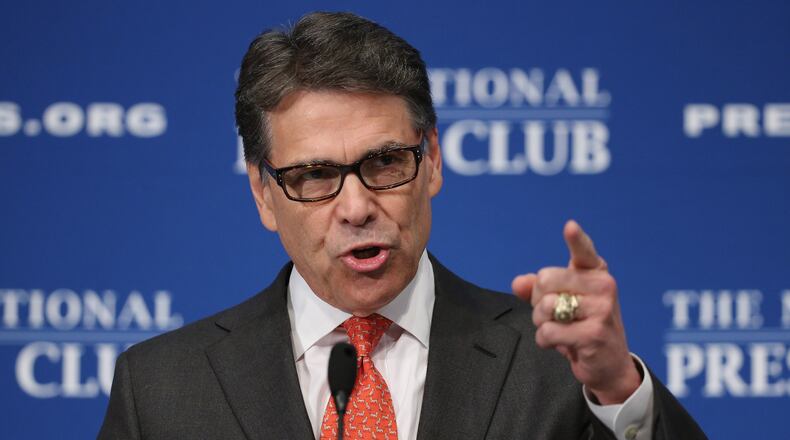Lots of people are either laughing or fretting about Donald Trump's rise in the polls. If you don't understand why all polls are not created equally, you might be one of them. I am not talking about the credibility of a particular pollster or even the number of months between now and the actual casting of votes, but rather the question being asked and whether that question has any relevance whatsoever.
A national Republican (or Democratic) primary poll, like the ones that show Trump leading the field, might have some relevance if we chose party nominees in a nationwide primary, or even if all primaries were held on the same day. Neither is the case. As we all know, the nominating contest is instead a series of state primaries and caucuses over the course of about five months, an electoral gauntlet that not only produces its own momentum but which shows national front-runners are often quite weak in any given state. To put the relevance of national polls in context -- especially those taken this far before voting begins -- consider that four years ago today Michele Bachmann, who suspended her campaign after one state contest (Iowa), was running in second place nationally among Republicans. In third place, soon to rise to a double-digit lead over eventual nominee Mitt Romney and the rest of the field, was Rick Perry, whose campaign didn't make it to the third state. Five different candidates held a national lead in the GOP contest at some point in the 2012 cycle; the last person to reach that level, Rick Santorum, finished ahead of all but Romney.
A deeper look at the national polls is instructive. At Five Thirty Eight, Harry Enten explains that while Trump is thought to have particular appeal to the far-right end of the GOP electorate, his support is actually relatively even across different segments of the party's voters. But, somewhat counter-intuitively, this is probably bad news for the Donald : "(T)he broad, shallow nature of Trump's support suggests it's due mostly to near-universal name recognition, thanks in part to being in the news more often than the news anchors." We will know more about Trump's real support, Enten writes, "once the novelty wears off." And within a piece ( "Donald Trump is the world's greatest troll" ) by Five Thirty Eight's editor, Nate Silver, there's a chart showing how bettors at the prediction market Betfair rate Trump's chances of capturing the nomination: just 5 percent, barely above Mike Huckabee and Benjamin Carson, who each are at 3 percent. Instead, bettors still think there's a nearly 75 percent chance that the nominee is either Jeb Bush, Marco Rubio or Scott Walker. Chances are, they're right on the money .
So, what does state-level polling tell us at this point? In Iowa , Walker still holds a nearly double-digit lead over Bush, with Trump in a tie with Rand Paul for third place. (It is worth noting Romney led the polls there only briefly before finishing in a virtual tie with Santorum, who never led.) Bush still leads in New Hampshire , although the data in the Real Clear Politics average are a bit old at this point. There aren't data current enough to be worth mentioning from South Carolina at the moment. In short, to believe Trump stands even a decent chance of becoming the nominee is to ignore the history that says the Republican Party is by far the less prone to surprises of our two major parties.
In fact, if anyone should be truly worried about what the polls are saying this far out, it's probably Hillary Clinton.
Despite Clinton's consistent lead in national head-to-head polls over potential GOP rivals, state-level polls suggest she's losing ground where it matters most. Here's a summary by The Hill of new data from Quinnipiac in three swing states :
"In Colorado, Walker holds the largest lead over Clinton -- 9 percentage points. Rubio follows shortly behind with an 8-point margin, while Bush leads by 5 percentage points.
"Clinton's margins are much closer in Virginia, but she's still on the losing side of all three hypothetical contests. Bush and Walker lead her by 3 points, while Rubio leads by 2. All of those results are about within the margin of error of 2.8 percent."
In 2012, Virginia and Colorado were the third- and fourth-closest states, respectively, of the ones Barack Obama won; Iowa was the seventh-closest. When Quinnipiac polled those match-ups in April, Clinton led in five of the nine. Now she trails in all nine. Even worse, perhaps, she may even be losing her case as the most electable Democrat. Also from The Hill:
"Sen. Bernie Sanders (I-Vt.) polls about as well as Clinton, if not better in some of the general election matchups in Iowa and Colorado, despite trailing the former secretary of State significantly in polls for the Democratic nomination. Vice President Joe Biden, who has not publicly announced a decision on 2016, matches up slightly worse than Clinton."
Heck, even Al Gore is getting some press as a possible savior for the party . If we can't have Bush-Clinton II, maybe we can have Bush-Gore II?
About the Author
Keep Reading
The Latest
Featured

